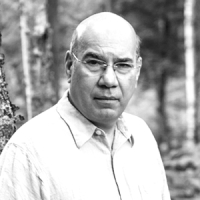In My Year Off, Robert McCrum wrote in absorbing detail about the consequences of a massive stroke that left him paralyzed on the left side at the age of 42. This acclaimed memoir was followed by a mix of novels and nonfiction, including a magisterial and entertaining life of P.G. Wodehouse. Now, in the wake of a tumultuous time (Brexit, Trump, pandemic) comes Shakespearean, a deeply personal look at the most admired playwright and poet in history, one who paid “fierce attention to the anxieties of his public,” a supremely gifted author who somehow, during a dangerously fraught era of political intrigue and plague, “mastered the art of dissimulation to shelter his creative privacy.” McCrum argues that today, in the wake of massive disruption, “we are closer than ever to Shakespeare and his world.”
No writer attracts more attention (or more deservedly) than Shakespeare, who showed us more than anyone else how language itself both informs and disrupts reality. His name alone conjures, as McCrum notes, “a universe of characters, poetry, and scenes and ideas undergoing constant reinterpretation by audiences, actors, and artists across the world.” I doubt that anyone reading this will not have seen a few of his plays—Hamlet, Othello, King Lear, Twelfth Night, The Tempest, Romeo and Juliet. For me, his sonnets have become part of my mental furniture, recited in the wee sleepless hours for consolation.
I suspect most of us have a treasure house of memories related to Shakespeare. Once, for instance, I played Marc Antony in Julius Caesar in the ninth grade in Scranton, Pennsylvania, and I still utter certain lines in my dreams: “Friends, Romans, countrymen, lend me your ears; / I come to bury Caesar, not to praise him.” In 1970, I watched a staggering performance of Macbeth set in Vietnam during the war. Twenty-odd years ago, I directed an idiosyncratic but lively production of A Midsummer Night’s Dream at my oldest son’s elementary school—all of the actors were 10 or 11. Once in Rome during the heyday of Silvio Berlusconi, I attended a shockingly apt performance of Henry IV, part 2, where we heard declaimed: “At a time of night when most of his subjects are asleep, / The king is up and busy about his affairs.” The crowd of English-speaking Italians laughed and cheered.
It seems that Shakespeare is always present, ever relevant to current circumstances, both trenchant and reassuring. For all this, it’s impossible to take in the scope and depth of his work in one fell swoop—that phrase itself originating in Macbeth! It’s no wonder many readers over the years have wondered if, indeed, a glove maker’s son from Stratford called Will Shakespeare could have written these brilliant plays. (McCrum dismisses the anti-Stratford crowd with a bold sweep of the hand!)
The goal of Shakespearean—an immensely stylish, entertaining, and informative book—is to connect the plays with audiences old and new, exploring the “secrets of literary inspiration, the magic of creativity itself,” and to vindicate the claim that “Shakespeare’s words and ideas are part of our shared humanity.” Few critics in universities would attempt such a project, and this leaves a broad expanse open for McCrum, who roams freely in the language of the plays, in history itself, making sharp judgments of value. He notes, toward the end of this book, that Harold Pinter (whom he knew well as editor and friend) used to whip off his glasses at the conclusion of any new play and ask, “Does it remain?”
Well, Shakespeare remains. McCrum is sure of this!
He recalls that, after his stroke, the Complete Works of Shakespeare became his “book of life,” and that “almost the only words that made sense were snatches of Shakespeare.” Fortunately, he had already metabolized many of these words, seeing countless productions from schoolboy days onward. Living in London, with its abundant theatrical life, he joined a circle of passionate friends dedicated to seeing new productions of the Bard’s work—and 20 years of dedicated viewing of these plays informs this book. He recalls that “several starry highlights live on in my memory: Derek Jacobi’s Lear, Harriet Walter’s Brutus, Andrew Scott’s Hamlet, Vanessa Redgrave’s Volumnia…” A well-turned line in a performance can suddenly “become a revelation” and “sponsor a new interpretation.”
In 300 or so elegantly written pages, McCrum roams through the life and work, examining the impact of Shakespeare’s plays over many centuries. In every time and place, he suggests, the play at hand could address national dilemmas. The Bard’s plays repeatedly face into crisis, even calamity, which is really nothing more than the human condition. Shakespeare never shrank from trouble, showing immense courage in his way, as when he opted to compose Macbeth in the wake of plots against the Stuart crown. “He would be at his most Shakespearean when choosing to write—for a Scottish king who lived in dread of assassination, and was obsessed with witchcraft—a new play about dynastic succession in which the protagonist, a psychopathic Scottish regicide, makes rendezvous with witches and himself invokes the supernational in a satanic rhapsody:
Stars, hide your fires,
Let not light see my black and deep desire;
The eye wink at the hand; yet let that be
Which the eye fears, when it is done, to see.
As ever, Shakespeare illumines his dramatic subject by “exploiting to the limit his penchant for dramatic antitheses.”
McCrum’s reflections on the American reception of Shakespeare are engrossing, and he observes that his “lines were often consoling but also provocative” for the original settlers in New England in the 17th century, who confronted a vast and threatening situation. They turned to Shakespeare as well as the Bible for assurance and wisdom. Lincoln, of course, famously alluded to Othello in his First Inaugural. And Lincoln’s opposite, the Confederate commander Jefferson Davis, urged his troops forward by quoting Richard III, inviting them to imagine a time when “grim-visaged war would smooth a wrinkled front.” From Mark Twain to Malcolm X and Homer Simpson, the words of Shakespeare burst forth, often in garbled versions, to explain a situation or arouse empathy or understanding. It was, perhaps, Emerson, the father of Transcendentalist thought, who put it most succinctly when he suggested that Shakespeare was a writer who “dwarfs all writers without a solitary exception.”
The question remains: How did Shakespeare create the Shakespearean universe? McCrum offers tantalizing hints throughout, but he’s not able to explain the genius. Nobody is. Indeed, “the ambiguities of Shakespeare’s life and work never fade.” On the other hand, this is part of the fun: trying to comprehend this unending and always various universe of language, thought, and meaning. Time and again, the Bard “doubled down on his lifelong instincts as a playwright,” which in McCrum’s eloquent formulation means “to engage his curiosity to the full, to locate his drama at the crossroads of maximum danger.”
It’s left to a novelist, Anthony Burgess—nicely quoted by McCrum—to suggest where we might look for an answer to the large question of how the playwright managed this conjuring trick that has entranced us for some four centuries. Shakespeare, says Burgess, “is ourselves, ordinary suffering humanity, fired by moderate ambitions, concerned with money, the victim of desire, all too mortal… We are all Will. Shakespeare is the name of one of our redeemers.”







